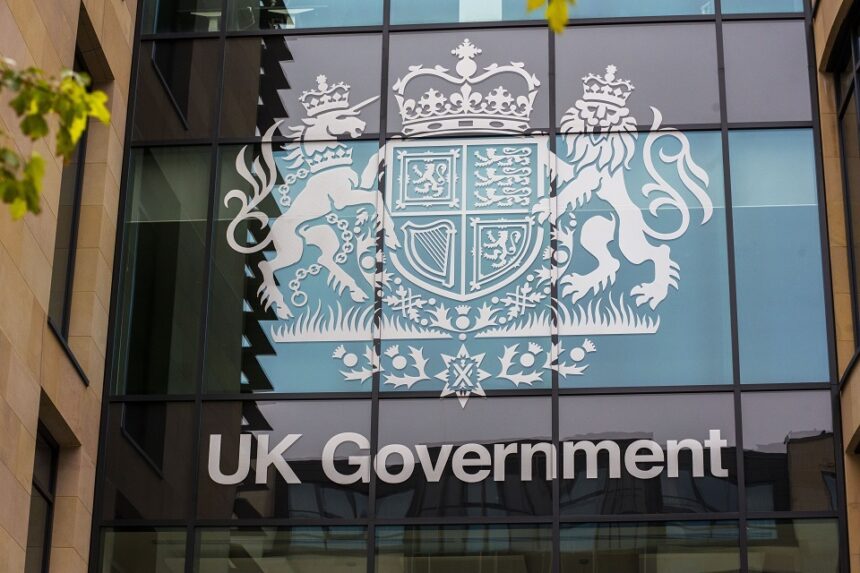The government of the United Kingdom has threatened visa sanctions against three African countries, Angola, Namibia, and the Democratic Republic of Congo (DRC), over ongoing asylum reforms.
UK’s Home Secretary Shabana Mahmood issued the threats on Monday, November 17, 2025, warning the three African countries of impending visa sanctions on their nationals unless they increase cooperation on the deportation of “illegal immigrants and foreign criminals.”
Mahmood announced that the penalties will target countries with “unacceptably low cooperation and obstructive returns processes.” According to her, the three nations, Angola, Namibia, and the DRC, have been given a one-month deadline to demonstrate an improved willingness to accept deportees before UK visa sanctions are enacted.
Mahmood said: “In Britain, we play by the rules. When I said there would be penalties for countries that do not take back criminals and illegal immigrants, I meant it.
“My message to foreign governments today is clear: accept the return of your citizens or lose the privilege of entering our country.”
Mahmood is also expected to address the House of Commons to lay out “the most sweeping reforms to tackle illegal migration in modern times”, effectively since the Second World War.
Modelled on the Danish system, the aim is to make the UK less attractive for illegal immigrants and make it easier to deport them.
Under the plans, the home secretary will bring forward a bill to change how article 8 of the European Convention on Human Rights (ECHR), the right to family life, is applied in migration court cases.
The Home Office has said it’s seen a rise in the use of rights-based appeals in recent years as a means of avoiding deportation.
The changes would see only those with immediate family in the UK, such as a parent or child, being able to use Article 8 in the future.
It was also gathered that the Home Secretary, who has been in the job for 73 days, also plans to change the law so that multiple attempts to appeal against refusals for asylum will no longer be allowed.
Furthermore, refugees would face a 20-year wait before they can apply for permanent settlement.
The Home Office said the “golden ticket” deal has seen asylum claims surge in the UK, drawing people across Europe, through safe countries, on to dangerous small boats.
Under the proposals, refugee status would become temporary and subject to regular review, with refugees removed once their home countries are deemed safe.
Speaking with the press on Sunday, Mahmood said she had observed how illegal migration had been “creating division across our country”.
She said, apart from the fact that the UK government had threatened visa sanctions against three African countries, other countries can be added.
She further revealed that refugee status will become temporary and subject to regular review, with people facing removal as soon as their home countries are deemed safe.
According to her, the UK government will now ensure that asylum seekers face a 20-year wait before they can apply for permanent settlement.
She added that new safe and legal routes to be introduced for those genuinely fleeing war and persecution.
There will also be changes to the legal framework that will require judges to prioritise public safety over migrants’ rights to a family life, she added.
Mahmood continued: “The government will use facial age estimation technology, a form of AI, to rapidly assess a person’s age in a bid to deter people who pretend to be children in an attempt to claim asylum.
“I can see that it is polarising communities across the country. I can see that it is dividing people and making them estranged from one another. I don’t want to stand back and watch that happen in my country.”
Prime Minister Sir Keir Starmer said: “Britain has always been a fair, tolerant and compassionate country – and this government will always defend those values.
“But in a more volatile world, people need to know our borders are secure and rules are enforced. These reforms will block endless appeals, stop last-minute claims, and scale up removals of those with no right to be here.”
Meanwhile, Conservative Party leader Kemi Badenoch has welcomed the ongoing development, praising the UK government after it threatened visa sanctions against three African countries.
Badenoch said Mahmood is “finally talking seriously about tackling illegal immigration”, but called the plans “weak”.
She said: “If the home secretary actually wants to cut illegal immigration, she should take up my offer to sit down with her and work on a plan that will actually stop the boats, rather than a few weak changes that will meet the approval of Labour MPs.”
However, Reform UK leader Nigel Farage, in his opinion, lambasted the UK government, saying: “The home secretary sounds like a Reform supporter.”
“Sadly, with the Human Rights Act and ECHR membership, the changes won’t survive the courts or probably even her own backbenchers,” he added.
The Refugee Council warned that the government would accrue a cost of £872m over 10 years as a result of the need to review asylum seekers’ status to remain in the UK.
Enver Solomon, the charity’s chief executive, insisted the changes “will not deter people from making dangerous crossings, but they will unfairly prevent men, women and children from integrating into British life”.





